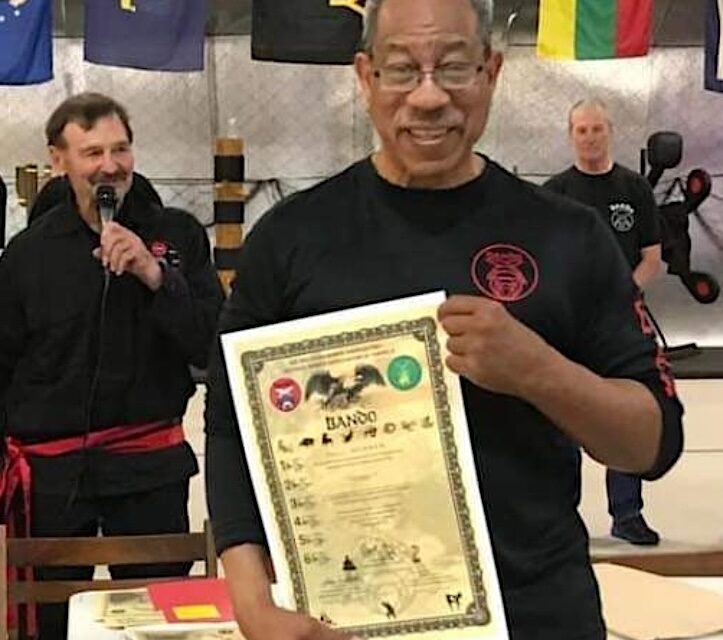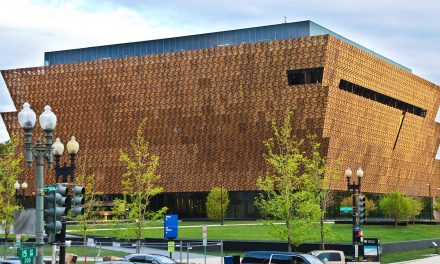Reginald Williams
Special to the AFRO
Aging is often a maligned occurrence. As men age, many begin to experience a host of physical ailments that can interrupt day to day life. Aching knees, shoulders, back and hips or a slower metabolism are just a few of the common complaints. It isn’t unusual to hear men claim they hurt in places they never knew existed; moving gingerly becomes a way of life.
According to the National Institute of Health, muscle mass begins to deteriorate by as much as three to eight percent per decade after age 30 and even more aggressively after 60. A lack of exercise heightens a body’s physical decay. It affirms the adage: “If you don’t use it, you will lose it.”
Health experts maintain that muscle and strength loss plays a significant factor in why older adults live with chronic disabilities. The problems that more senior men experience is not due to their aging, but their abandonment of physical activity. It isn’t unusual for former well-fit athletes to embrace—in their later years— a sedentary lifestyle complemented by a poor diet. The axiom, “You are what you eat,” has been proven truthful. Black men, who have the lowest life expectancy, live with and die from preventable chronic illnesses largely due to poor diet and minimal physical activities.
“You have to treat your body right so that it can treat you right.”
Chronic illnesses and death have little to do with aging, and more about abstaining from healthy actions. Eating nutrient-dense diets, complemented with daily movement, is instrumental in living with less pain and fewer compromising chronic illnesses.

“We’re not getting any younger and we only have one body,” explained Frank Sheffield, a 60-year-old roller-skating enthusiast. “You have to treat your body right so that it can treat you right.”
Upon waking each morning, Sheffield performs his pushups before carrying out any other task.
Lon Walls, 13 years Sheffield’s senior, remains fit from his youth. At 73, the former Ohio University football player and bando instructor continues to excel in his fitness with the practice of the Burmese martial arts.
“I got into bando when I was playing spring football. It was 1970. Me and this other brother named Terry decided we were going to take a class. Spring football was over, and we were still geeked up and wanting to hit something. We went to a class, and it was the most impressive thing I’ve ever seen,” explained the seven-time national kickboxing and free-fighting champion. Because Walls instructs students a third of his age, the Toledo, Ohio native wants to be active and available to demonstrate what he’s training his students to achieve.
“You see a lot of people who are coaches and trainers sometimes don’t look the part. They have the knowledge, but when you look at them, you wonder—can they execute or demonstrate? I guess after a certain age, you can’t, but for me—part of what’s been my mission is to not only have the knowledge, but still be able to execute to some degree,” explained Walls. “That’s why I train. That’s why I keep myself in good shape.”
Walls said younger generations keep him sharp.
“I’m teaching guys who are 24, 25 years old who are geeked up and have all kinds of testosterone. I want to be able to show them and physically demonstrate what I want them to do. They see me in the gym training, even when I’m not teaching. They know that I’m for real—I’m a serious martial artist. I’m about keeping myself in shape and perfecting my craft. That’s been my driving force in terms of my whole physical being.”
At 74, Dwight Williams begins his health regimen before getting out of bed, spending no less than five minutes practicing deep sleep meditation, a discipline learned when he visited Africa almost 50 years ago. In 1959, at 10 years of age, Williams was told he needed to have his left kidney removed. His health issue would eventually lead him to travel the world to find a solution.
Today, he practices an exercise routine that is performed at various times of the day. The West Baltimore resident plans to live to be at least 100 years of age, healthy and fit.
“I work hard. My job right now is staying alive and healthy for as long as I can,” shared Williams.
Remaining physically fit in those senior years does not eliminate all aches and pains. Dedicating time daily to massage his joints is a part of Williams’ daily health regimen. Aging means body parts will experience some deterioration that produces throbbing body irritations.
“It’s inevitable. Even with exercising, I still get stiffness, aches and pains,” explained Sheffield, the entertainment manager for national recording husband and wife duo—Kindred. “Those things come with age…but at the same time they’ll get much worse if you don’t exercise.”
Williams, Walls and Sheffield, who began his current regimen in the grips of the pandemic, always partook in some form of physical exertion. Sheffield loves to roller skate three or four times per week. However, the fitness plan for each became more intentional because of health concerns. After their doctor’s visit, Walls discovered that several arteries were blocked and required the insertion of a coronary stent. Sheffield was warned by his primary care provider that he needed to lose up to 10 pounds in three months if he was going to successfully manage his continuously rising blood pressure. The native Washingtonian lost 35 pounds, and his blood pressure lowered below 120/20.
Walls participates in exercise classes twice per week. Sheffield’s calisthenics routine consists of daily pushups—between 150 and 200, pullups, dips, and abdominal work, and his healthy diet keeps his weight at about 200 pounds. He’s no longer required to take blood pressure medication. Williams begins his day exercising and continues throughout the day. He performs approximately 150 pushups, 60 pullups, and two sets of 30 squats—30 in the morning and an additional 30 in the evening.
Many older men are disinterested in exercising on a daily basis, believing that the intersection between the demand for their time to exercise and its benefit isn’t beneficial enough to commit. However, in speaking with committed men, many say they work out to stay fit, not necessarily live longer, but instead to experience a quality life in their final years free of debilitating diseases.
David Wellington, a 77-year-old health enthusiast, does not work out because he wants to live a quality of life as much as he wants to die in peace. It isn’t unusual for men suffering from noncommunicable diseases to grow weary from fighting daily with their health battles.
According to the National Library of Medicine, Black men experience the presence of one or more chronic illness challenges, resulting in a steeper decline in health, which continues to grow wider.
Wall’s primary incentive for remaining physically fit is watching the health decline of his friends.
“I see people around me that are deteriorating, and that sorta motivates me,” explained Walls, the sixth-level black belt. “I’ve seen brothers, a lot of my contemporaries who didn’t stop bad habits or stopped too late, and basically they’re not here or in pretty bad shape health-wise. That’s my number one motivation. I don’t want to be like that.”
Reginald Williams, the author of “A Marginalized Voice: Devalued, Dismissed, Disenfranchised & Demonized” writes on Black men and holistic health concerns. Please email bookreggie@reginaldwilliams.org or visit amvonlinestore.com for more information.
The post Fit after 50: Aging gracefully with exercise and a healthy diet appeared first on AFRO American Newspapers.











